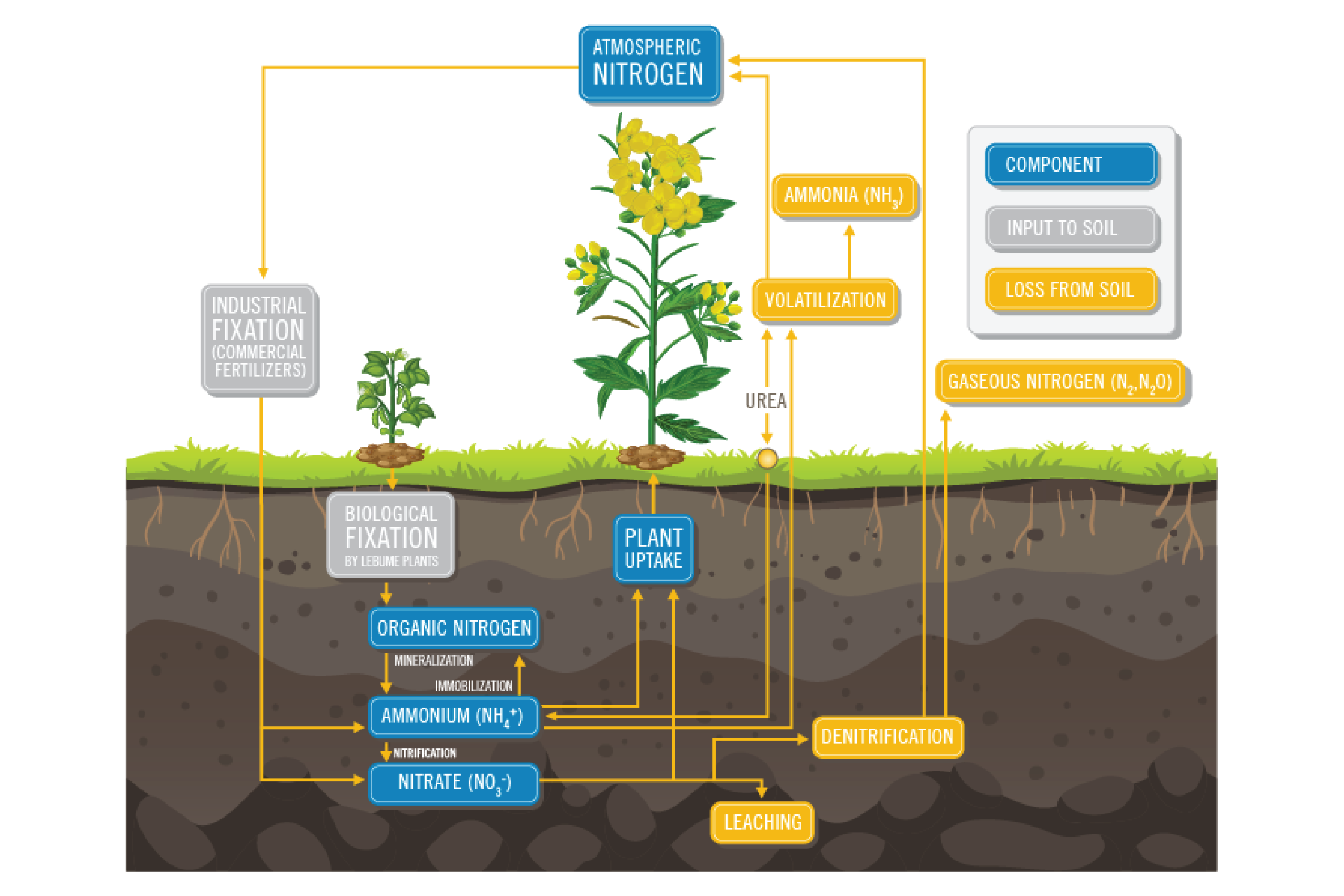Read Time: 3 minutes
It really does start with a plan.
Fertilizer purchases can be complex and represent a significant investment in your crop. Planning ahead and understanding your soil and your crop’s nutrition needs enable you to purchase fertilizer when it makes the most sense from a cash flow, return on investment and logistical standpoint.
Feed your crops to reach their full potential
Soil sampling around Cargill locations in the fall of 2023 showed moderate to severe micronutrient deficiency on many farms. Every farm is different based on the crops grown and fertility practices, but soil sampling is always the first step to creating a fertilizer plan that will help unlock performance from your least productive land to your top acres. Choose your province to see what nutrient deficiencies are trending near you.
Choose your province
Alberta

Cargill soil samples collected from Albertan farms in the fall of 2023 showed moderate to severe boron or copper deficiencies on at least 85% of the farms tested and moderate to severe potassium deficiencies on almost 80%. This graph shows our deficiency and sufficiency findings for a range of soil nutrients necessary for crop yield and quality. For more information, or to book soil sampling for your farm, contact your local Cargill representative.
*Every farm is different based on crop production history and fertility practices.
Boron, B
Boron is used in the formation and strengthening of cell walls. Boron deficiency results in short, thick cell walls, and root and pollen tube elongation is inhibited. Flowers can fail to set seeds. Research also shows Boron is important for nitrogen fixation and nodulation in legumes. Crops most affected: canola, flax, peas.
Copper, Cu
Copper is needed for carbohydrate and nitrogen metabolism. Inadequate copper results in stunted plants. Copper is immobile in the plant and you may see pig tailing in new plant growth when copper is deficient. Crops most affected: wheat, oats, barley.
Zinc, Zn
Zinc is a catalyst in many of the enzyme systems used to regulate the early growth stages of plants. It is vital for fruit, seed and root system development, formation of plant growth regulators and helping to manage crop stress. Crops most affected: corn, dry beans, flax.
Nitrogen, N
Nitrogen is the main constituent of protein and is essential for growth and development in plants. A plant's supply of nitrogen determines its growth, vigour, colour and yield. Affects all crops.
Phosphorus, P
Phosphorus is vital for adequate root development and helps the plant resist drought. It's also important for plant growth and development, such as the ripening of seed and fruit. Affects all crops.
Potassium, K
Potassium is central to the translocation of photosynthesis within plants and for high-yielding crops. It helps improve crop resistance to lodging, disease and drought. Affects all crops.
Sulphur, S
Sulphur is essential to the formation of plant proteins, amino acids, some vitamins and enzymes. Deficiencies are seen on new growth and include yellowing, purpling, and cupping of leaves. Affects all crops.
Manganese, Mn
Manganese is essential for phosphorus uptake and assimilates CO2 used by the plant during photosynthesis. Deficiency is often seen first as yellowing or grey speckling in crops most sensitive to the deficiency, such as oats. Manganese deficiency is linked to alkaline soils, in fields with high organic matter, and is worsened during cold, wet seasons. Crops most affected: oats, wheat, peas.
Protect your fert investment with this limited time offer.
Protect your UAN investment from nitrogen loss with a nitrogen stabilizer like TRIBUNE® that prevents N loss below and above ground. For a limited time we're offering a discount on TRIBUNE. Take this opportunity to protect your fertilizer and save on investment.

Agronomics
What agronomic challenges are you facing? Soil sampling will help you create a crop nutrition plan to address them, keeping long-term goals in mind.
Logistics
If you can store fertilizer on-farm, you can take advantage of appealing pricing. Having a nutrient plan will help you time purchases to meet all your needs.
Cost
You can typically save by purchasing fertilizer summer through fall. Taking a target return-on-investment approach can help lock in attractive prices.
The Law of Minimum
Picture a water barrel with slats of different lengths. The barrel's capacity to hold water is determined by the shortest slat. Similarly, crop yields are limited by nutrient shortages. Once you address the limiting factor, yield will increase until you encounter the next limiting factor.


4R Nutrient Stewardship
The 4R philosophy is based on scientific principles and recommends practices for applying fertilizer with the goal of reducing your environmental impact. Many farms in western Canada already apply fertilizer using the 4R principles of right source, right rate, right time, right place®, and many others would only need to make minor changes to be officially on the 4R journey. Cargill's fertilizer planning process ensures that you will recieve a 4R designated plan that will help you:
- Meet the crop nutrition needs of your farm
- Optimize your fertilizer spend
- Reduce greenhouse gas emissions, movement of nitrogen to groundwater, and movement of nitrogen and phosphorus to surface water.
A wide range of fertilizer products
If you're not sure what you need, and you'd like to see a comprehensive list of the fertilizer products offered by Cargill in Western Canada, it's just a click away.

Looking for ways to line up your grain marketing and fertilizer decisions?
A team of MarketSense advisors can help you navigate the factors that often impact fertilizer prices, like foreign exchange, commodity swings, production issues and world politics. They can help build a plan that will help protect your bottom line while feeding your crops.
Read Time: 5 minutes
Read Time: 6 minutes








